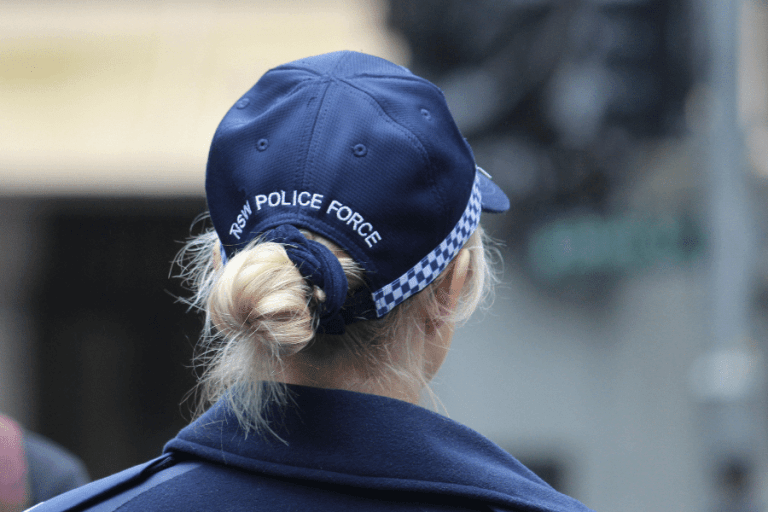Police Search Powers: Mobile Phones
Civil Law Factsheets
Jump To
What Can Police Search?
There are a few circumstances in which a NSW police officer may stop and search a person without a warrant, and then seize any items including a mobile phone.
Stop and Search Power – Section 21
Section 21 of the Law Enforcement (Powers and Responsibilities) Act 2005 (NSW) (‘LEPRA‘) gives police the power to stop and search a person. However, that is only if the officer has a suspicion, based on reasonable grounds, that they’re in the possession of:
- a stolen item,
- illicit substances,
- or they have a dangerous weapon or anything else used or intended to be used in an offence.
This section also allows an officer to seize and detain any item in that persons possession if the officer has a reasonable suspicion that:
- it’s stolen,
- or it has or will be used in committing an offence
- or contains evidence of an offence

Stop and Search (Vehicle) – Section 36
Under this section, police can stop and search a vehicle in similar circumstances to what’s we set out above. As well they can seize and detain items for the same reasons.
Searching after an arrest – Section 27
Section 27 allows a police officer to search a person on or after their arrest. This is if the officer has the reasonable suspicion that they are carrying something that could be dangerous, allow them to escape police custody, or was used in an offence or could be or contain evidence.
Searching someone in custody – Section 28A
Section 28A allows police to search someone in lawful custody after their arrest. They can then seize anything on their person. However, they need to do this:
- at a police station,
- a place of detention,
- or immediately before or during transportation to one of these places.

Can an Officer Look Through My Phone If They Seize It?
If you have locked the phone with a passcode, then police cannot look through it unless they have a warrant (see the section below!).
However, this is a tricky area. While we’ve had them for ages, smartphones are still pretty new in terms of legislating around them. Smartphones hold an almost limitless amount of information. Searching one is substantially different from a search of your backpack or wallet.
Section 30 of LEPRA allows an officer to examine anything in the possession of someone that the law permits them to search. For example, they can look through your bag, wallet or your phone. There isn’t anything explicit in the legislation which says police can not look through your phone at things not related to the grounds for the search.
However, there is this presumption that there needs to be some sort of link between what they have a legal entitlement to access in your phone and the grounds for the original search. Ultimately this really needs clarification by the NSW Government, Police or the Courts.
Can Police Demand You To Unlock Your Phone?
Police need a warrant in order to force you to disclose your password, PIN or encryption keys to enable a smartphone.
However, it’s unclear whether an officer holding your phone up to your face to unlock it biometrically would satisfy this requirement.
Section 3LA of the Crimes Act 1914 (Cth) sets out that an officer needs to apply to a magistrate for a order requiring an individual provide them with access to their electronic device if there is suspicion of it holding the evidence of a crime.
In conclusion, if an officer has this order, then you could suffer severe penalties by not complying with it.
Getting Searched By NSW Police
If NSW Police stop and search you, follow their directions. Otherwise you may face charges of assault police, resist arrest or hindering police.
Consequently, if they tell you that you are being searched, the best thing to say is “I do not consent, but I will comply”.
However, in the event of an unlawful search, O’Brien Criminal & Civil Solicitors can represent you in any criminal charges, to have the police drop the charges. We can then potentially represent you in civil proceedings to obtain compensation for the unlawful stop and search.
How we can help you
“Police searched me and I think it was unlawful, what do I do?” The first step is to consult a lawyer.
We offer free initial consultations from our criminal solicitors.
If you think police have acted unlawfully in the exercise of their duties, then it is important to speak to a lawyer.
In some instances, the unlawful actions of police may give rise to a civil claim against police for assault, battery, false imprisonment or malicious prosecution.

